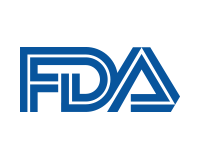United States Department of Health and Human Services

United States Food and Drug Administration: Publications
ORCID IDs
http://orcid.org/0000-0003-0244-6607
Date of this Version
2019
Document Type
Article
Citation
U.S. government works are not subject to copyright.
Abstract
This study examined the impact of “New” and “#1 Prescribed” market claims and quantitative efficacy information on perceptions of a hypothetical prescription drug in a direct‐to‐consumer (DTC) print advertisement. We examined two market claims (New and #1 Prescribed), two efficacy levels (higher and lower), and a control condition without this information. Participants with diabetes were randomized to review one ad version and asked their perceptions of the ad's message, the drug's benefits, side effects and risks, doctors' opinions about the drug, and behavioral intention to use the drug, as well as recall and recognition of drug benefits and risks. Results suggest the market claim affects personal perceptions and perceptions of the ad's message about drug benefits and perceptions about doctors' opinions of the drug. Inclusion of quantitative information about product efficacy did not show a large influence on perceptions. These findings can help inform stakeholders and policy makers as they work to ensure DTC prescription drug promotion does not mislead patients.
Included in
Dietetics and Clinical Nutrition Commons, Health and Medical Administration Commons, Health Services Administration Commons, Pharmaceutical Preparations Commons, Pharmacy Administration, Policy and Regulation Commons


Comments
Psychol. Mark. 2019;36:747–757. wileyonlinelibrary.com/journal/mar